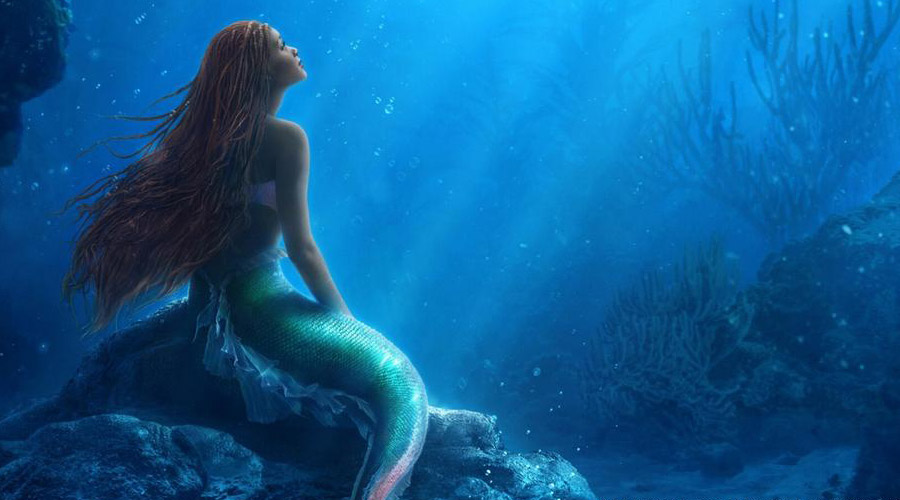The American illustrator and visionary Walt Disney created unforgettable characters, from Mickey Mouse to Donald Duck.
The founding moment for Disney's entertainment empire was October 16, 1923, the day he sold 12 films, including "Alice's Wonderland," to the New York film distribution company M. J. Winkler.
The deal kicked off a century of blockbuster success for the Disney brand.
In that time, Disney has grown from a movie production company to a multimedial entertainment conglomerate with its own streaming platform and numerous subsidiary companies
To mark the anniversary, a live-action remake of the Disney classic "The Little Mermaid" will be released in cinemas on May 26, 2023. However, the road to the film's release has been bumpy.
Racism over casting decisions
The lead character, Ariel, the little mermaid, is thin with pale skin and a flowing red mane in the original Disney animated movie.
After a long dry spell, the animated film, whose story is based on the 1837 fairy tale of "The Little Mermaid" by Danish author Hans Christian Andersen, was a gold mine for the studio when it was released in 1989.
It won Golden Globes, a Grammy and two Oscars for Best Score and Best Song with "Under the Sea," and prefaced a Disney boom in the 1990s with animated hits such as "Beauty and the Beast"(1991), "Aladdin"(1992), "The Lion King" (1994) and "Pocahontas"(1995).
In 2019, when Disney announced that African American actress and singer Halle Bailey would play Ariel, not everyone was happy about it.
Under the hashtag #notmymermaid, fans petitioned against the casting decision with racistinsults. Many fans of the original Disney film could not imagine an actor in the role who did not look exactly like the animated Ariel of 1989.
Disney staunchly defended its decision to cast Bailey. In a Twitter statement via the Disney-owned cable network, Freeform, it wrote: "The original author of 'The Little Mermaid' was Danish. Ariel … is a mermaid … But for the sake of argument, let's say that Ariel, too, is Danish. Danish mermaids can be black because Danish *people* can be black."
The company praised Bailey's outstanding talents and suggested that not being able to get past the fact that she "doesn't look like the cartoon one” is racist.
Is racism a thing of the past at Disney?
The Disney movie "Dumbo" in 1941: A group of crows sit on a branch, one of them smokes a cigar. They laugh, dance, sing and make fun of Dumbo, who sits nearby, offended.
The leader of the crows is Jim Crow. This was the stage name of 19th century comedian Thomas D. Rice, who rose to fame performing blackface in his minstrel show. Jim Crow also refers to the name of the segregation laws in the South of the US.
Disney now realizes that this scene in the 1941 film classic was offensive, as it was reminiscent of racistminstrel shows in which white performers with blackened faces and tattered clothing imitated and mocked enslaved Africans on the plantations of the southern states. The film includes other cynical portrayals of Black people in the US that trivialize the history of slavery.
These days, Disney has addressed the problem by issuing warnings before older movies, including "Dumbo," "Peter Pan" and "Aristocats."
They include the warning: "This program includes negative depictions and/or mistreatment of people or cultures. These stereotypes were wrong then and are wrong now."
Such insertions are intended to stimulate discussions that will help create an inclusive future free of discrimination, the group says. But is a notice at the beginning of a film enough?
Cultural appropriation then and now
Cultural appropriation is when components of one culture, such as intellectual property, cultural expressions, artifacts, history or types of knowledge are used by members of another culture, especially for capital gain.
Disney's filmography includes several examples where elements of a particular culture have been taken and altered for entertainment purposes. For example, the film "Pocahontas" has little in common with the original story: Disney turned a 10-year-old girl into an attractive, lightly dressed woman who falls in love with John Smith, an English adventurer and colonialist.
Disney has acknowledged these mistakes over time. The corporation is now increasingly trying to tell authentic stories and to talk and collaborate with people from other cultures. For example, the company founded the "Stories Matter" platform, where the company not only talks about its new approach to filmmaking, but also about its past mistakes.
Disney films and the sexism accusation
Many Disney classics are also problematic from a feminist point of view. Ariel in particular does not come off well in this regard, as she throws herself into the arms of a prince she hardly knows — barely escaping her strict, patriarchal father. She gives up not only her origins, but her voice for the prince.
But in recent years, Disney has changed this, too.
Its new heroines have been allowed to experience their adventures without an ultimate goal of finding a prince, such as in the movie "Moana," or challenge traditional notions of romantic love, as in "Frozen."
Since the 2010s, there have also been homosexual characters, as in "Strange World" from 2022, which features a gay romance, even if it was criticized by some in the LGTBQ+ community.
The problems of society as a whole, such as racism, sexism and homophobia, can only be tackled by first telling more diverse stories.
How Disney has reworked the story of Ariel, the little mermaid, with this in mind remains unclear until the premiere in May.











